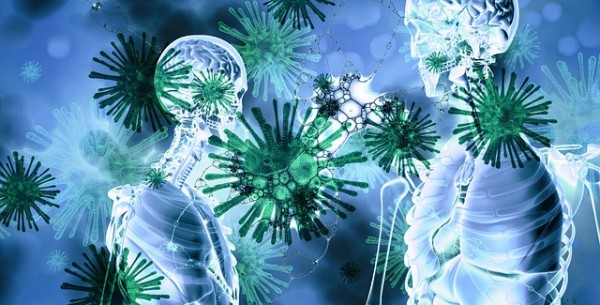How SARS-CoV-2 Infection Contributes to Further Spread of COVID-19 Explained in a New Study

Researchers at the University of Arizona Health Sciences recently found that SARS-CoV-2, the virus that causes COVID-19, can relieve pain.
Researchers at the University of Arizona Health Sciences recently found that SARS-CoV-2, the virus that causes COVID-19, can relieve pain.
According to Rajesh Khanna, the study's corresponding author and a College of Medicine professor at the Tucson's Department of Pharmacology, their new study finding may explain the reason almost 50 percent of people who contract COVID-19 experience only a few or totally no symptoms, although they can spread the disease.
"It made a lot of sense to me," Said Dr. Khanna, that probably, the reason for the insistent spread of COVID-19 is that, in the virus's early stages, patients are "walking around all fines as if nothing is wrong" as their pain has been inhibited.
The corresponding author explained further, a person has the virus, "But you don't feel bad" because the pain is gone. If they can prove that the said pain relief is what's leading the COVID-19 to spread further, Khanna said, "That's for an enormous value."
The new study entitled "SARS-CoV-2 Spike protein in co-opts VEGF-A/Neuropilin-1 Receptor signalling to induce analgesia" is set for publication in the International Association of the Study of Pain's journal, PAIN.
ALSO READ: Some Mosquito-Borne Diseases Expected to Rise, Stanford Researchers Predict
The CDC's Update on COVID-19
The US Centers for Disease Control and Prevention recently released updated data approximating half of the transmission of COVID-19 occurs before the onset of symptoms, and 40 percent of the virus's contagions are asymptomatic.
According to Michael Dake, MD, the Senior Vice President of UArizona Health Sciences, this study raises the probability that "pain, as an early COVID-19 symptom," may be lessened by the SARS-Cov-2 spike protein because it calms or hushes the pain signalling pathways of the body.
The UArizona Health Sciences study authors at the Comprehensive Pain and Addiction Center, Dake said, are leveraging this distinctive finding to discover an innovative class of treatment pain as there is a continued search for new ways to deal with what he called "the opioid epidemic."
Medical and science reports indicate that viruses pass on a disease to host cells via protein receptors on cell membranes. In relation to this, early in this global health crisis, researchers established "that the SARS-CoV-2 spike protein utilizes the ACE2 or angiotensin-converting enzyme 2 receptor to get into the body.
However, in June, two papers published in bioRxiv, a preprint server, identified the neuropilin-1 "as a second receptor for SARS-CoV-2."
The said studies, Dr. Khanna said, caught their eye because for the last decade-and-a-half, his lab has been investigating a complex of proteins and pathways that link to pain processing are neuropilins downstream.
Khana, a UArizona BIO5 Institute member and affiliated with the UArizona Health Sciences Comprehensive Pain and Addiction Center, also said; thus, they stepped back with a realization that it could probably, the spike protein has something to do with some kind of pain processing.
DON'T MISS THIS: the UK Might Roll Out Antibody Tests With at Least 98% Accuracy by the End of the Year
To Continue Study on Neuropilin's Role in the Spread of COVID-19
Khanna has teamed up with immunologists and virologists at UArizona Health Sciences to continue studying neuropilin's role in the spread of COVID-19.
In his lab, he will further investigate neuropilin "as a new target for non-opioid pain relief." During the study, the corresponding author tested existing small molecule neuropilin inhibitors developed to stop tumors' growth in certain cancers and discovered they offered similar pain relief as the SARS-CoV-2 protein when binding to neuropilin.
Relatively, Khanna elaborated that they are moving forward with developing small molecules against neuropilin, specifically natural compounds that could be essential for relieving pain.
The expert also said that with the pandemic and opioid epidemic that he added, they are colliding, their research findings have massive effects for both.
IN CASE YOU MISSED THIS: Tricare Issues an Apology Statement After Telling 600k Beneficiaries They've Had COVID-19
Check out more news and information on the COVID-19 and Dengue on MD News Daily.
Oct 02, 2020 08:20 AM EDT





